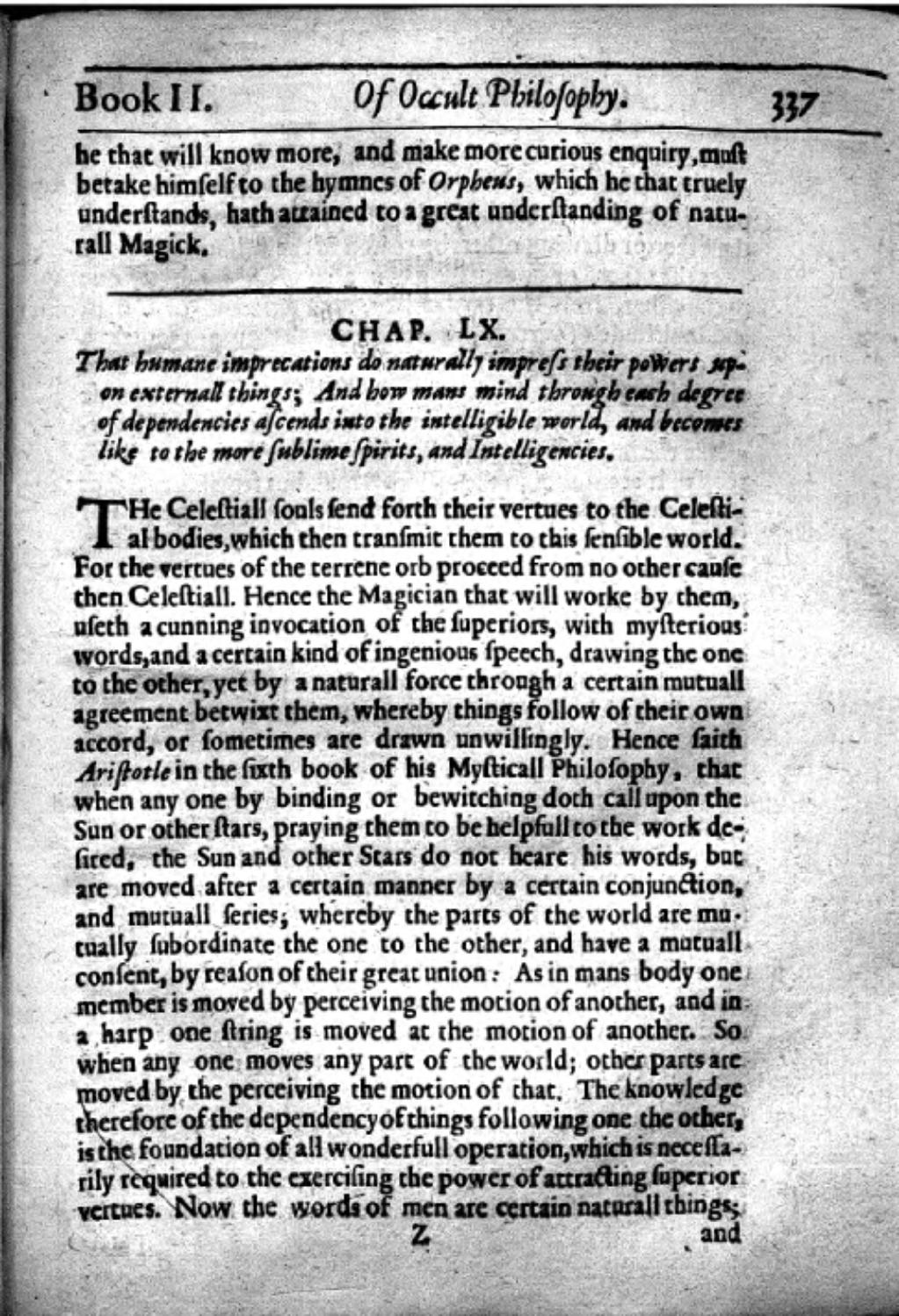will know more, and make more curious enquiry, must betake himself to the hymnes of Orpheus, which he that truely understands, hath attained to a great understanding of naturall Magick.
Chap. lx. That humane imprecations do naturally impress their powers upon externall things; And how mans mind through each degree of dependencies ascends into the intelligible world, and becomes like to the more sublime spirits, and Intelligencies. The Celestiall souls send forth their vertues to the Celestial bodies, which then transmit them to this sensible world. For the vertues of the terrene orb proceed from no other cause then Celestiall. Hence the Magician that will worke by them, useth a cunning invocation of the superiors, with mysterious words, and a certain kind of ingenious speech, drawing the one to the other, yet by a naturall force through a certain mutuall agreement betwixt them, whereby things follow of their own accord, or sometimes are drawn unwillingly. Hence saith Aristotle in the sixth book of his Mysticall Philosophy, that when any one by binding or bewitching doth call upon the Sun or other stars, praying them to be helpfull to the work desired, the Sun and other Stars do not heare his words, but are moved after a certain manner by a certain conjunction, and mutuall series, whereby the parts of the world are mutually subordinate the one to the other, and have a mutuall consent, by reason of their great union: As in mans body one member is moved by perceiving the motion of another, and in a harp one string is moved at the motion of another. So when any one moves any part of the world; other parts are moved by the perceiving the motion of that. The knowledge therefore of the dependency of things following one the other, is the foundation of all wonderfull operation, which is necessarily required to the exercising the power of attracting superior vertues. Now the words of men are certain naturall things, and because the parts of the world mutually
